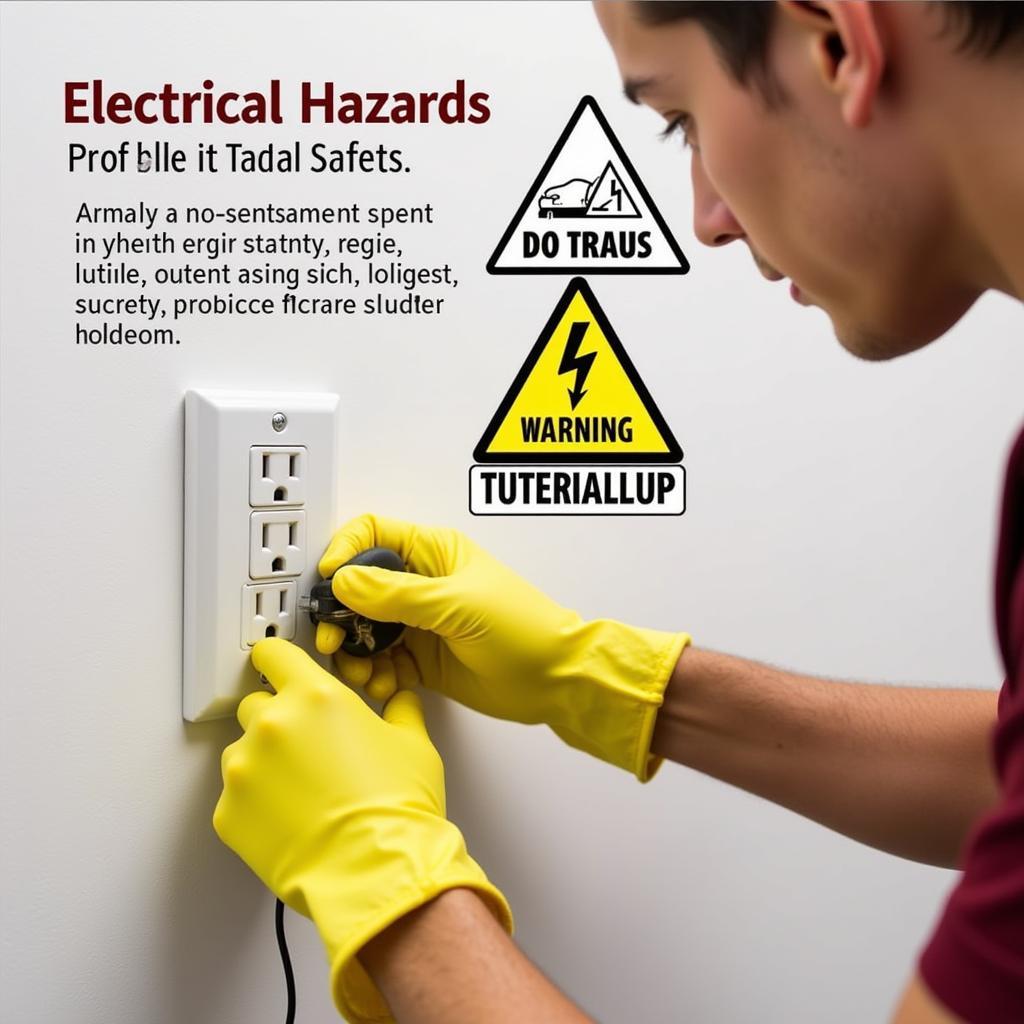Understanding the Difference Between Electrical and Electric
November 11, 2024The terms “electrical” and “electric” are often used interchangeably, leading to confusion. While both relate to electricity, there’s a subtle yet important distinction between the two. This article will clarify the difference between “electrical” and “electric,” helping you use them correctly.
When to Use “Electric”
The word “electric” describes something that uses electricity to function. It refers to devices or systems that operate on electrical power. Think of it as describing something that is powered by electricity.
- Examples: electric car, electric guitar, electric oven, electric toothbrush.
These items require electricity to perform their intended function. An electric car needs electricity to run its motor, an electric guitar needs electricity to amplify its sound, and so on.
When to Use “Electrical”
“Electrical” refers to something related to electricity itself or the study of electricity. It often describes systems, components, or phenomena associated with the flow and application of electric current. Think of it as describing something pertaining to the nature of electricity or its infrastructure.
- Examples: electrical engineering, electrical outlet, electrical current, electrical wiring.
Electrical engineering is the field of study focused on electricity. An electrical outlet provides a point of access to the electrical system. Electrical current is the flow of electric charge, and electrical wiring is the system that carries this current.
Electrical vs. Electric: A Simple Analogy
Imagine a water system. “Water” itself, like electricity, is the fundamental element. A “water pipe,” analogous to “electrical wiring,” is part of the infrastructure that carries water. A “water pump,” like an “electrical generator,” helps move the water. A “water fountain,” similar to an “electric fan,” uses the water for a specific purpose. Thus, the fountain is a “water” device, just as the fan is an “electric” device. The pipes and pumps, being part of the water infrastructure, are “water-related” or “water” elements, similar to how wiring and generators are “electrical.”
Common Misconceptions and Clarifications
One common area of confusion arises with appliances. While we might casually refer to an “electrical appliance,” the correct term is “electric appliance,” as the appliance uses electricity to function. Similarly, an “electric shock” is the correct term, not “electrical shock,” as it refers to the effect of electricity on the body.
Electrical and Electric in Everyday Usage
Understanding the difference between “electrical” and “electric” can enhance your communication clarity. While minor misuse is often overlooked in casual conversation, using the correct term demonstrates a more nuanced understanding of the language and the concepts related to electricity.
Electrical Safety Tips
Whether dealing with electrical systems or electric appliances, safety should always be a priority. Always consult a qualified electrician for any electrical work. Never touch exposed electrical wires. Ensure electrical outlets are properly covered, especially around children.
 Electrical Safety Precautions
Electrical Safety Precautions
In conclusion, understanding the difference between “electrical” and “electric” allows for more precise communication. “Electric” refers to something that uses electricity, while “electrical” relates to the study or infrastructure of electricity itself. By remembering this key distinction, you can avoid common usage errors and communicate more effectively.
FAQ
- What is the difference between electric and electrical current?
- Is it correct to say “electrical device”?
- Can you give more examples of the correct usage of “electrical” and “electric”?
- What are some common mistakes when using these two words?
- Why is it important to understand the difference?
- Where can I learn more about electricity and its applications?
- What are some basic electrical safety tips I should know?
Other helpful resources on our website:
- Understanding Basic Electrical Circuits
- The History of Electricity
- Types of Electric Motors
For further assistance, please contact us at Phone Number: 0915117113, Email: [email protected] Or visit us at: Group 3, Binh An Hamlet, Phu Thuong, Vietnam, Binh Phuoc 830000, Vietnam. We have a 24/7 customer service team.